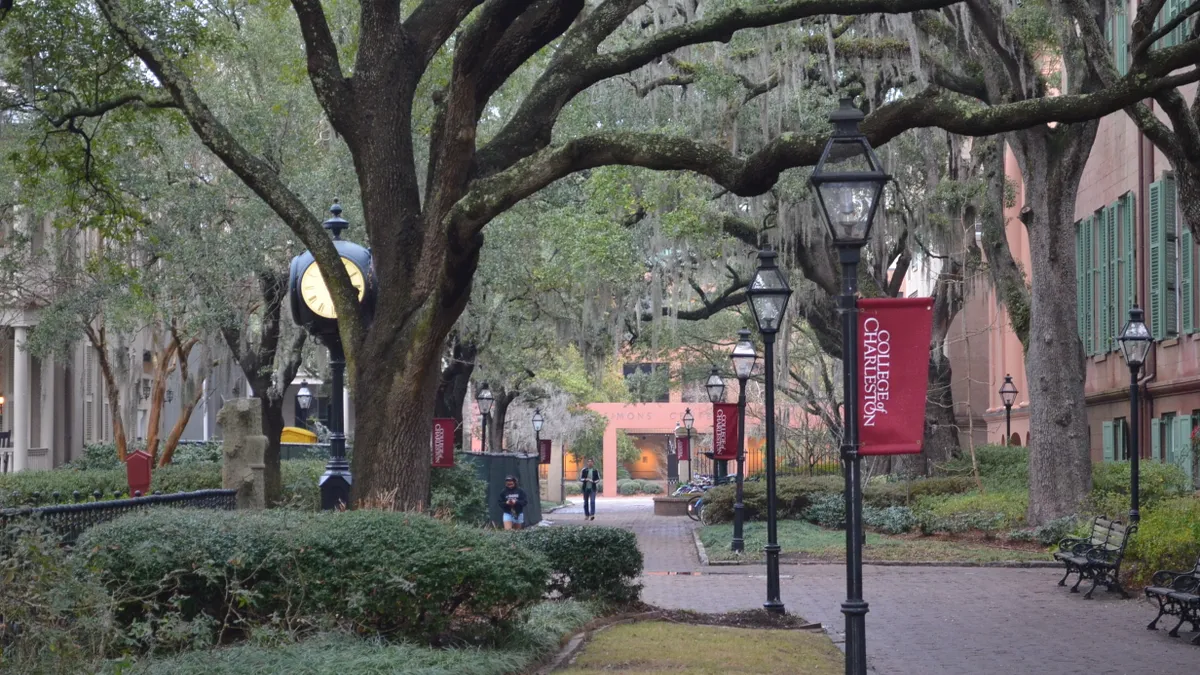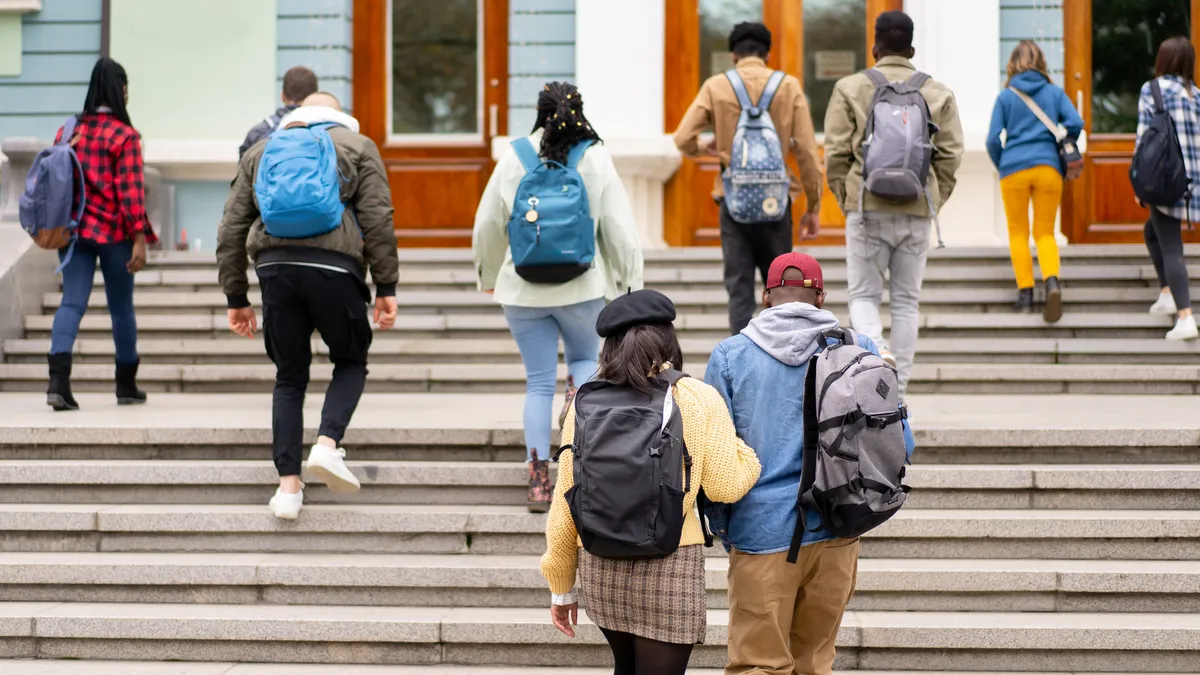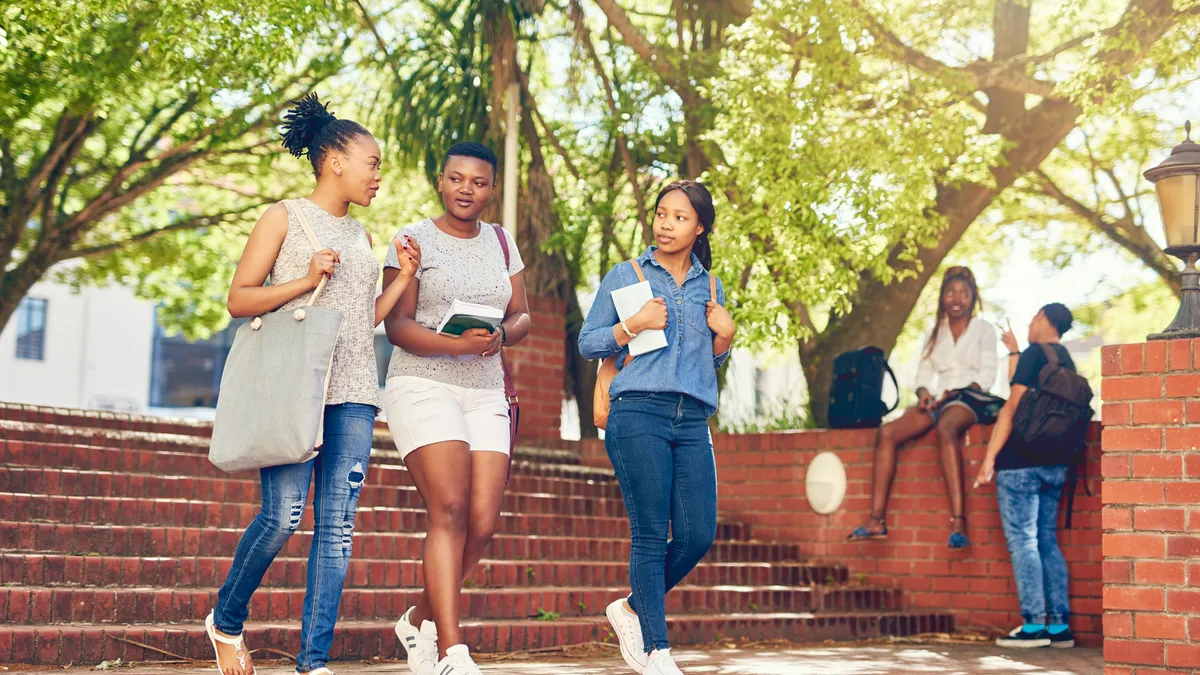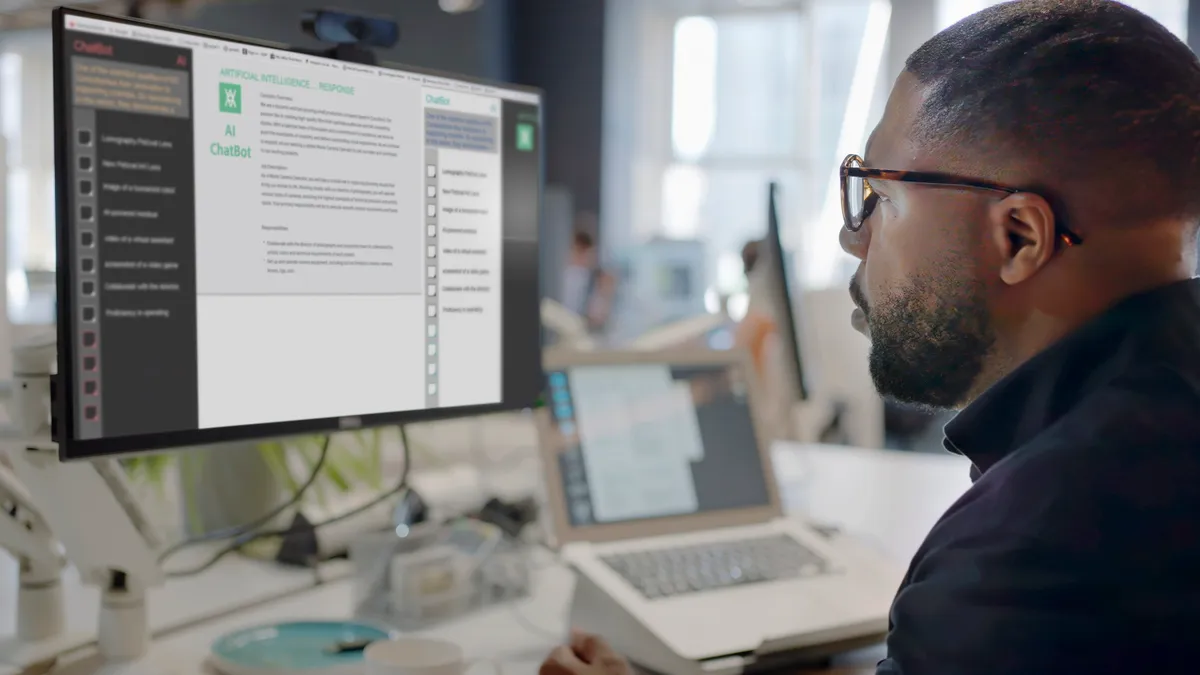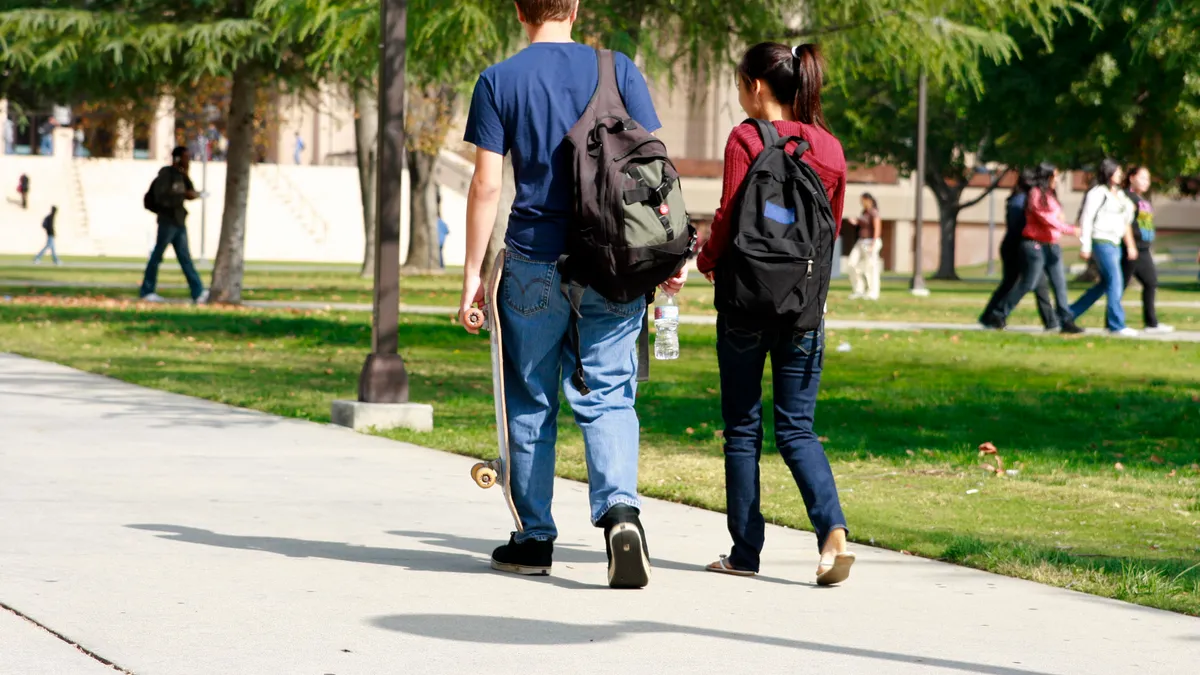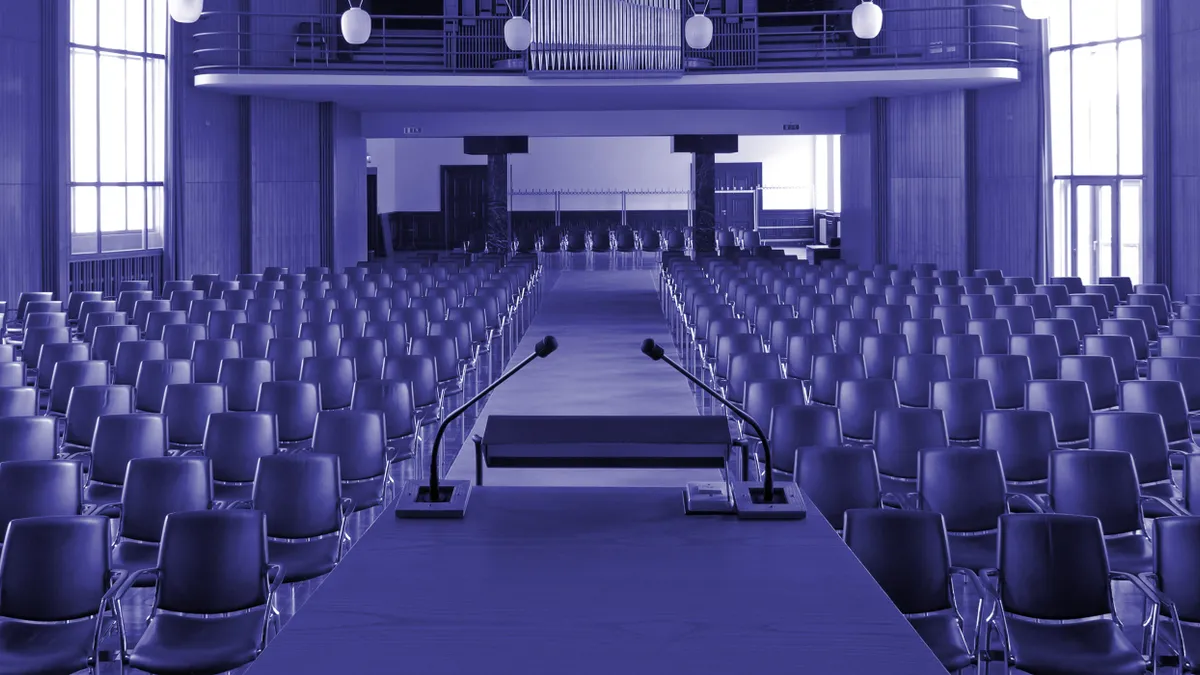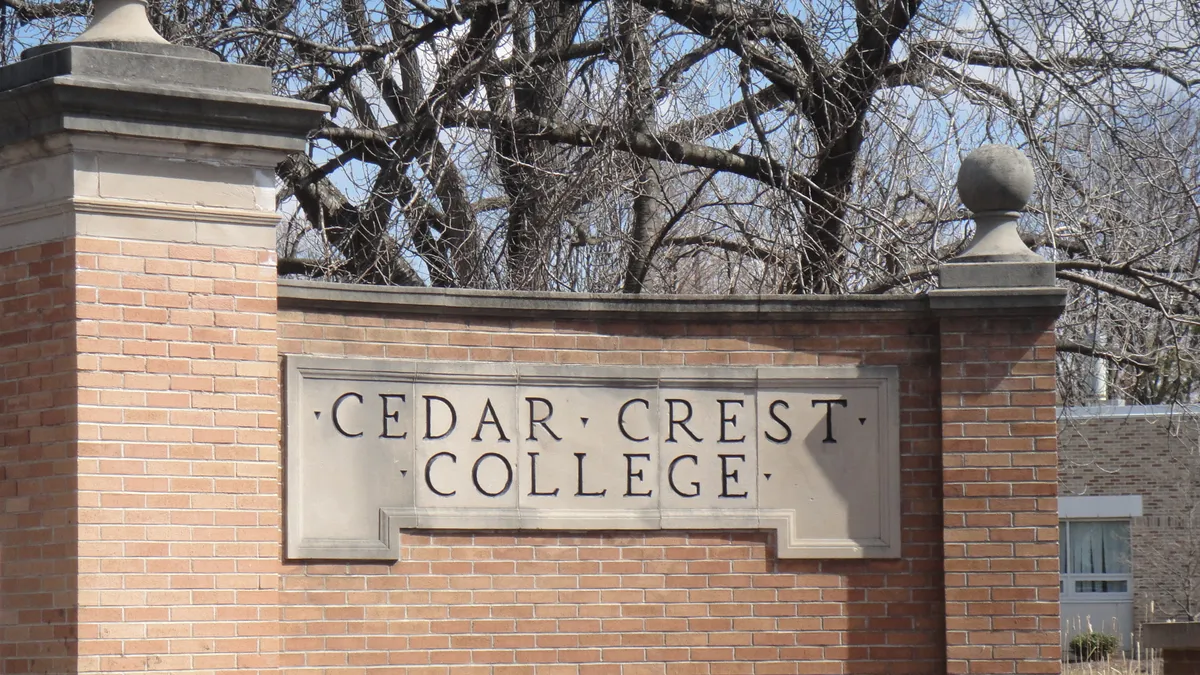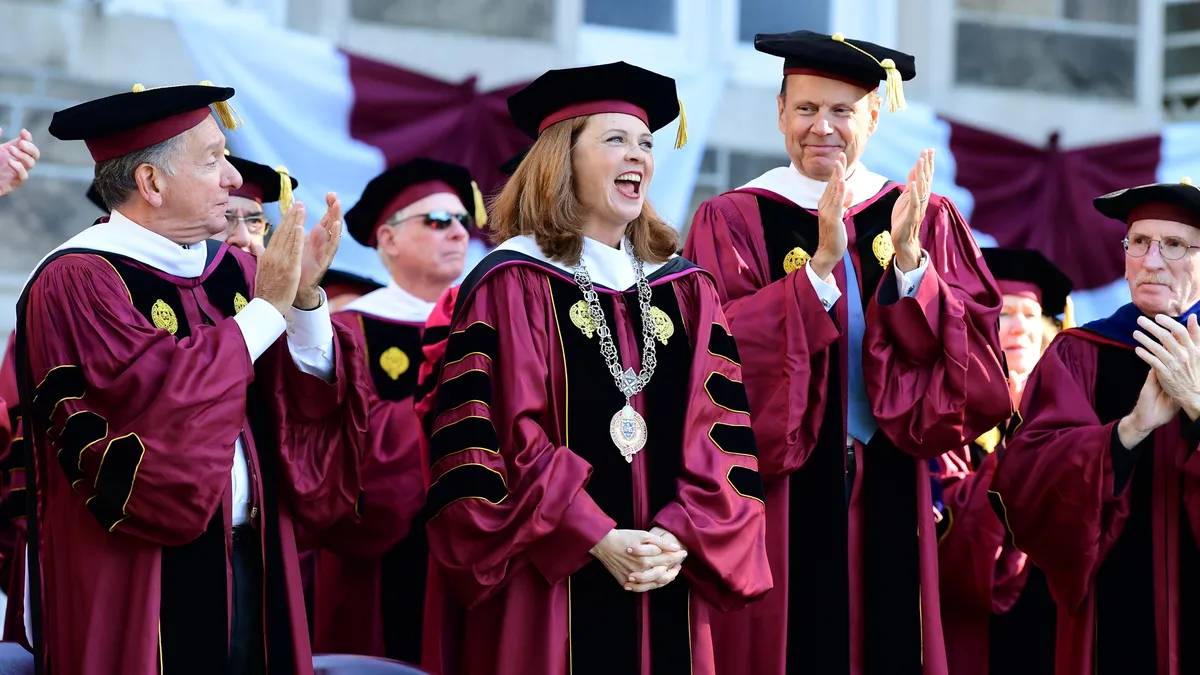Andrew Hsu is the 23rd president of the College of Charleston, a public liberal arts university located in historic downtown Charleston, South Carolina.
In Shakespeare’s "Hamlet," there is a moment when the brooding prince climbs atop a cliff, one overlooking the Danish sea, and delivers his most famous lines: “To be, or not to be, that is the question.”
University presidents now find themselves on a precipice like Hamlet as we think through the many changes gathering on the horizon: artificial intelligence, the impending enrollment cliff in 2025 and some overloud critics questioning the relevance of a college degree. Just one of those forces alone creates an existential crisis for higher education, but all three coming at the same time, well, it feels a bit like watching a tsunami wave fast approaching our shores.
However, to my core, I am an optimist. Time and time again, my optimism has been reaffirmed by how things turn out ultimately to the positive, both on a personal and a professional level.
I came of age in a very turbulent time — the Chinese Cultural Revolution — and those experiences have shaped my perspective and attitudes in ways I can’t ever hope to fully describe and probably even fully understand myself. As a teenager, I worked years in the countryside with the peasants, away from my family, and attended school in fits and starts. It wasn’t until entering college and then graduate school in the U.S. that I had any sort of continuity in my studies and intellectual development.
One of the lessons I do remember learning early on, from an education system tightly controlled by the government, was that America was no friend to Communist China. Yet for some reason, I took it upon myself to learn English, the language of the enemy, partly out of boredom and partly out of rebelling in my own small way against the command state surrounding me.
I share that information not for pity nor to illuminate some aspect of the exotic for Western readers, but to say that my knowledge of English gave me a path forward — to graduate school in the U.S. and a long career in the states. Out of something negative came something positive.
On a professional level, all university presidents experienced the pandemic in a fairly similar way — closing down campuses mid-semester and trying to work with faculty and staff to come up with myriad fixes on the fly. It would have been nice if we were working from one template — a shared playbook — but we had to invent a thousand different solutions on our own to fit our specific institutions and communities.
That being said, smart people pulled together and found a way forward. It’s a credit to human ingenuity and fortitude. For my institution, we came out stronger from the crisis, establishing new processes and incorporating technology like we never had before. Out of something negative came something positive.
Of course, the solutions to AI, shifting demographics for traditional-age college students and the noise around a college degree’s relevance are not uniform. They will look different at every institution. Some will have better answers than others. And in the university way of doing things, those best practices will eventually trickle throughout the industry. The collegial nature of higher education should provide hope that if one university figures something out, there will be more soon to follow. Call it evolution, group style.
These next few years are going to see both tremendous advancement and tremendous disruption — “the slings and arrows of outrageous fortune,” to borrow again from "Hamlet."
However, I believe our meaning remains clear: to be the types of institutions that respond to change and prepare students and our communities with an expanding knowledge base to keep moving forward. For me, that goes beyond optimism — that is just human nature.


